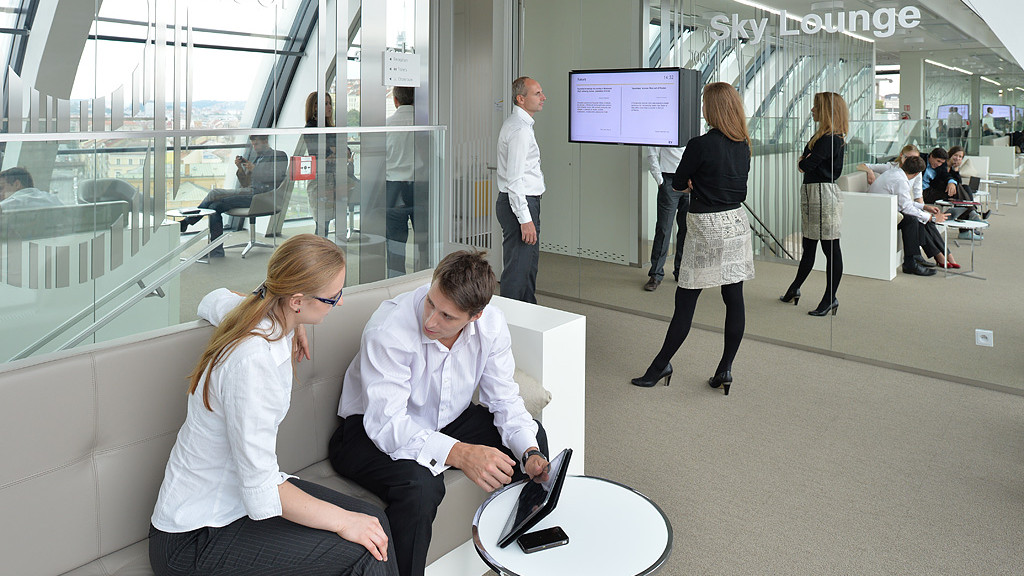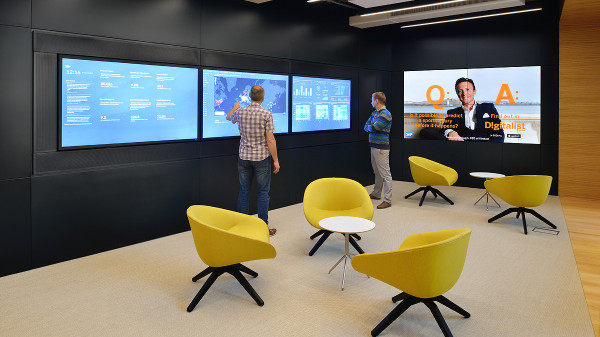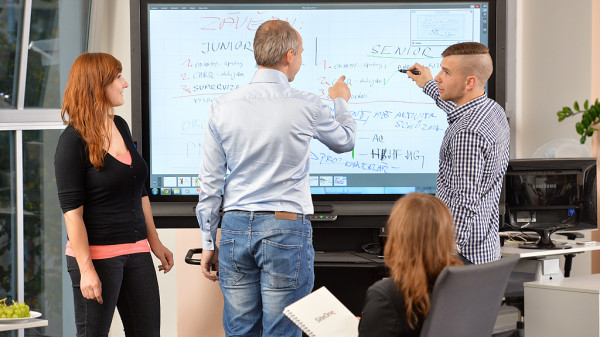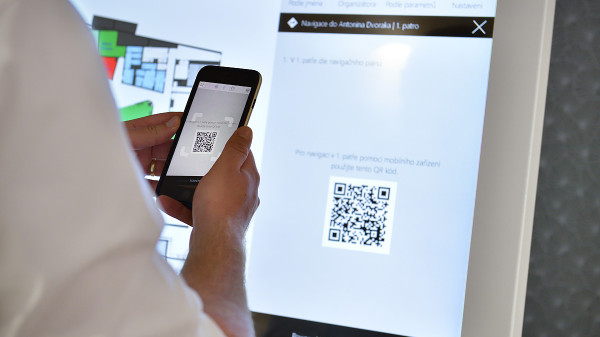
Nowadays we deal with a lot of questions: How to improve the image of the company to attract talented people? What is attractive to employees, what really matters? How to improve corporate culture? How to manage the new normal in the post-coronavirus era? What will the future of work look like, what modern communication technologies will be deployed and what new ways of working can be expected? Not only these questions were answered by Jiří Plátek, Workplace Design Specialist, AV MEDIA, a.s.
Those who want to ignite others must burn themselves.
First recommendation
Take care of people and develop their digital skills (use technology), professional skills (continuous learning) and soft skills (communicate openly, collaborate across remote teams and recognize the importance of empathic concern).
Developing soft skills is absolutely critical to understanding self-discipline, engagement, company values and culture. The main goal of leaders is the “development of people”, their personality, expanding awareness of emotional intelligence, realizing the potential of communication, cooperation and way of thinking. It is also important to create practical experience on how to flexibly respond to changes and problems among colleagues, hybrid teams, customers and at the same time propose agile, fast and novel solutions. Leaders must realize that the long-term success of hybrid teams* and of their members is not only based on professional skills (e.g. digital literacy); today, paradoxically, we are not competing with humans, but with robots or artificial intelligence. Much more important is the “development of emotional intelligence”. Understand yourself, your colleagues, teams, customers, business partners and better understand the values and meaning of the work you do.
People do not need to be managed, people need to develop.
*Hybrid teams: some people work from the office, some people work from home or from anywhere.
It is said that when a team member and the entire team know their employer and company DNA well, the employer understands the teams and their members much better. Which means both parties understand what they can expect from each other. In the long term, the employer can purposefully prepare teams and members for new challenges so that everything fits together like the gears in a mechanical watch.
The key to a successful organization is that you “really care about people and teams”. What is this about? People must feel good in the work environment: physically, mentally and emotionally, so that in difficult times (e.g. post-coronavirus) they can quickly find their way, find themselves, connect and realize their own mission towards the organization or the team. This means maintaining an interest in open communication, remote collaboration, creativity and strengthening company visions. The new normal is not working in an office from 8am to 5pm, the new normal is a hybrid way of open communication and collaboration from anywhere. It is precisely at this moment that you can tell whether people are truly fulfilling their potential, whether their work gives them meaning, whether they can fulfil themselves and adapt to new situations, or whether they will eventually leave.
Productivity, satisfaction and engagement are constantly declining. How to make hybrid team members truly engaged and satisfied? Organizations, teams and all people need to understand that they are doing meaningful work that they enjoy, that gives them meaning, that brings benefits and joy. Why is it important?
If you do not focus on the work experience from a fulfilling job, you will never pass a “positive experience to your employees” and certainly not to your customers. Customers will be dissatisfied and move to competitors. What is the cause? They are your people and teams because they solve problems from the work being done.
Technology must make life easier for employees, customers and people in general.
We can use “digital transformation vs. Covid-19” as a perfect means to build hybrid teams. What is the mission of hybrid teams? To fulfil the ambitions of people and teams to live their lives, to create, to communicate with each other openly and without fear and to collaborate remotely, to fulfil their missions, to make full use of the acquired life skills. Unfortunately, we are ignoring the current opportunities. While it is really so easy. Observe and take an interest in people and teams in the post-coronavirus era. The excuse is that we do not have enough time because we need to focus on other important things. We are in a vicious circle. We do not consider change as an opportunity, but as a problem that we cannot deal with.
Our mind is set in such a way that what we cannot measure well, we consider unconvincing and imperfect. We cannot imagine how remote teamwork, engagement and employee satisfaction can be translated into the economic results of the company. What is the problem, you ask?
The development of individuals and team growth are not working for you. There is no regular (preferably once a week) interaction between the leader and team members. Let me ask you a simple question. Do you know exactly what you are doing with the team, how you are fulfilling common goals? Then do not be surprised that, according to a Gallup study, 70% of employees are not interested in work because they do not enjoy it. Show interest, listen to what people are saying, how and from where they want to work, and define expectations together. People usually have different expectations than yours.
Second recommendation
Give space to all people and teams who have the desire, have ideas and are able to come up with innovations. You can recognize such people and teams simply because they do not wait for tasks and processes, but are self-disciplined, creative, want to develop, look for new challenges, value freedom and flexibility. Open the way for these people to their engagement, sense of fulfilment from the performed work, mutual understanding and mutual help. It is called “co-creation, co-responsibility”.
Robots, artificial intelligence and technology will help us understand why work gives us meaning.
To be able to talk about real co-creation and co-responsibility, we need to understand the individual personality of the team members in order to use their potential, what they actually enjoy, what they are interested in, how they want to develop. Everything needs to be set up so it is considered personal fulfilment, everyday routine and long-term discipline. Each team member works with a specific “individual interest” and preferences. Everyone’s individuality gives the whole team a great opportunity to work together in a balanced, disciplined and efficient manner from anywhere.
Third recommendation
Be interested in what is happening around you. Be interested in what your colleague is doing. Be interested in how teams and the entire organization work. Find out how you can be useful, how you can help. By deepening your interest, you automatically educate yourself, expand your knowledge and get out of your “comfort zone”. Today, expertise in one area is not enough: getting a job, doing it well and getting an adequate reward. The command and control approach worked decades ago. Today it is necessary to improve thinking and adapt to new changes.
We have to start thinking and collaborating differently than what we have been used to.
It is necessary to listen more, contribute, get involved, co-create, think and search for meaning. To understand everyone’s individuality (self) vs. creativity of the team (open communication) and to be a part of it. To be interested in changing things together, lifelong learning and accepting new challenges, Jiří Plátek concludes our interview.





















